12/10/21: Global Convenience Store Focus
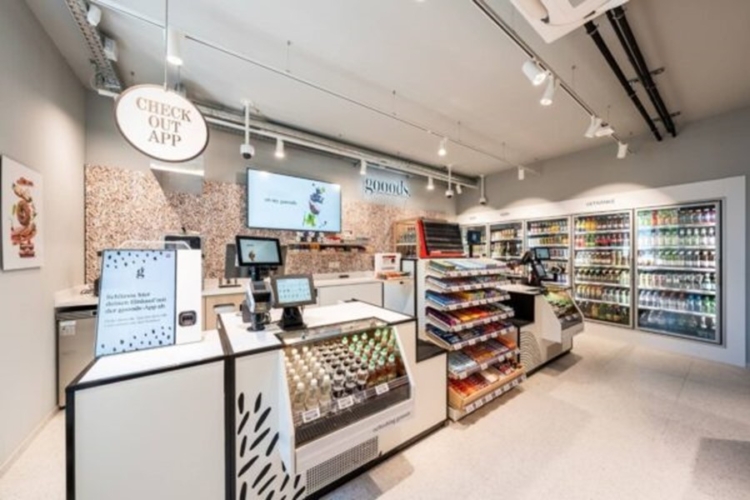
Covid-19 disrupted the Swiss retail market creating winners and losers in all channels and it’s unlikely things will fully return to pre-pandemic ways.
That’s according to Marco Fuhrer, managing partner at consulting and marketing research company, Fuhrer & Hotz, and the NACS relationship partner for Switzerland.
Fuhrer has an expert viewpoint. Fuhrer & Hotz specialises in market research and specifically customer journeys and shopper behaviour across a host of retail sectors including convenience retail. The consultancy also produces regular studies exploring key developments in retail including Convenience Switzerland 2021 and the Petrol Station Shop Report Switzerland 2021/2022, produced in association with the VTSS (the association of gas station shop owners in Switzerland) and supported by NACS.
Further, Fuhrer & Hotz through its Swiss Marketing Forum brand has recently hosted the Swiss Convenience Retail Day 2021, a ‘real life’ event hosted in Zurich, featuring a raft of top convenience and forecourt retailers and on-trend food brands.
Delegates were required to have a Covid health pass in order to attend with the Forum operating the 3G rule to ensure everyone was either Tested, Vaccinated or Recovered (Getestet, Geimpft or Genesen). There was even a test station at the entrance for those who had not been able to certify prior to the event but no-one was turned away and delegates relished the opportunity for face-to-face interactions with no face coverings, Fuhrer reports.
Fresh from the event Fuhrer picks up on the latest trends and themes in Swiss retail and the impact of the pandemic.
Nielsen’s ‘Trolley tracking survey’, for instance, shows that the pre-pandemic trends to buy ‘little and often’ and a decline in big trolley shops have been flipped on their head.

“Pre-pandemic people were going to stores more often and buying just what they needed – small baskets. They would visit up to four stores so loyalty was not that intense. During the pandemic, people tried to go to stores just once per week and the basket was a big one. They wouldn’t go often but would buy whatever they could,” Fuhrer recalls.
And, he doesn’t envisage a lot of change going forward. Around 35% of the Swiss population are one-person households, who don’t plan what they want to buy since they are unsure how they will spend their evenings.
Pre-pandemic the convenience store was literally their fridge outside of their own house or flat, Fuhrer smiles. “This was different during the pandemic. It changed a lot of things,” he says.
With mandatory stay-at-home orders in place, retailers in all channels were impacted but in different ways.
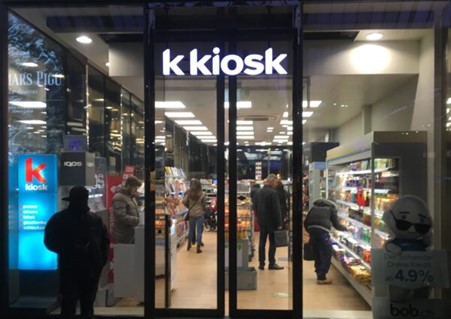
Forecourt stores located near residential areas performed very well with shoppers using these sites to purchase categories they would normally buy at a supermarket or discounter.
Forecourt sites on highway locations fared less well, however, as commuters were no longer stopping at these stores to buy a sandwich for lunch. Food-to-go and foodservice in general declined and stores located at train stations and airports were among the hardest hit and, in Fuhrer’s words, are “still a mess”.
Fuhrer reports railway stations are not tipped to return to their 2019 capacities for the next three to four years. Similarly for airports. Worse, while working from home policies persist and reduce footfall at railway stations, sites have been further impacted by people who have chosen to drive in safety by car rather than travel by train.
Channel shifting also took place during the crisis. Lidl and Aldi launched food-to-go products such as hot slices of pizza, winning traction for the hard discount format as shoppers turned to these stores for interesting new lines.
But, while these retailers have done really well in food, they are currently suffering in non-food with delays on Chinese imports and especially for time- sensitive seasonal lines.
While the discounters (in food) and supermarkets did well during the pandemic the convenience market fell away, Fuhrer reports. In Switzerland neighbourhood stores tend to be located near to where people live, not c-stores, and this format benefited.
New consumer behaviours – taking their own food into work, ordering food for delivery and learning to cook – also affected convenience stores’ food-for-now business, Fuhrer says. “People learnt that cooking is fun and that if they cook a little more, they can use it the next day, so don’t need to go out and get it during a break,” he adds.
Neighbourhood stores were also boosted by linking with local farmers, who were unable to sell direct from their farms during the crisis, to sell their fresh produce in their stores.
According to Fuhrer, locally sourced produce was popular during the pandemic and was regarded as being safer than imports from countries such as Italy, for instance.
In a similar vein, c-stores have started to co-operate with local bakeries to produce sandwiches on their behalf and have introduced local cheeses, meats and regional wines.
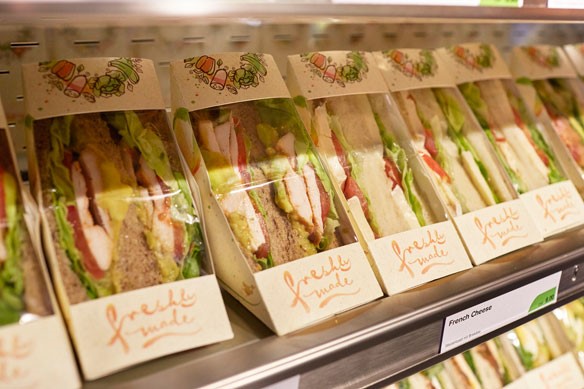
“People love that,” Fuhrer says. “They want a freshly made sandwich with top ingredients and appreciate that if a bakery is producing it, they are professionals. Some people have a psychological barrier about something that is freshly made but by people who are not professionals preparing food ie people working in a store or forecourt.”
Hygiene has always been important – a clean bathroom experience has been a top three expectation in Fuhrer & Hotz’s consumer survey for the last 12 years – but has been magnified during the pandemic. “There is a sensitivity that was not there before and new needs,” Fuhrer says.
Migrolino Gooods
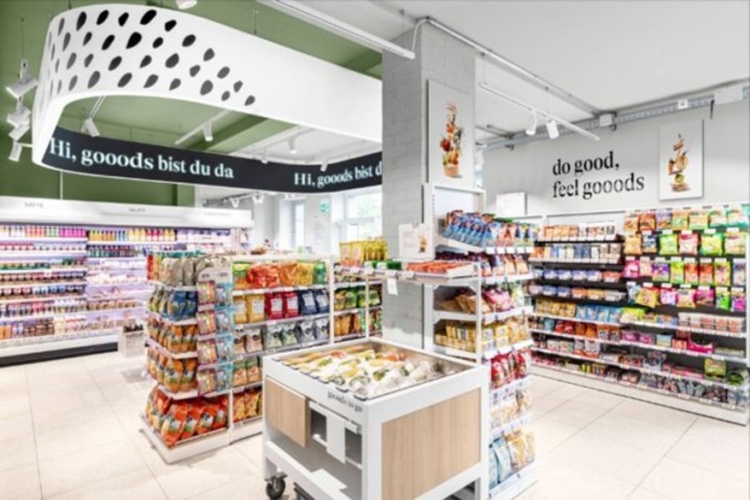
Covid has not stopped the Swiss from innovating. Indeed, it’s possibly accelerated the process and one of the first new convenience retail formats, developed over the last 12 months, has just been launched – Migrolino’s Gooods concept.
Fuhrer was invited to the pre-opening along with Migrolino CEO Markus Laenzlinger and his team.
“They’ve done a great job – I love it,” Fuhrer says. “It’s very digital and very strongly focused on the newest trends regarding nutrition, product provenance and organic products.”
Gooods, designed and fitted by Interstore | Schweitzer, caters for all diets – vegetarian, vegan and flexitarian – plus allergies and intolerances. The milk, for instance, is almond milk versus cow’s milk.
The store features a water station where shoppers can full up a bottle of water for free and also offers innovative fresh fruit smoothie cups.
While Migrolino is no stranger to retailing healthier product concepts, Gooods ups the ante, Fuhrer believes.
“It’s the first time the focus has been that strong and aimed at people who want to live that way and spend a little more,” he says.
The store’s focus is also pitched towards women versus men, who typically account for 60-65% of the customer base in regular Migrolino stores.
The interior colour palette – white and pistachio green – is deliberate in this respect, as well as the offer of trending new super foods.
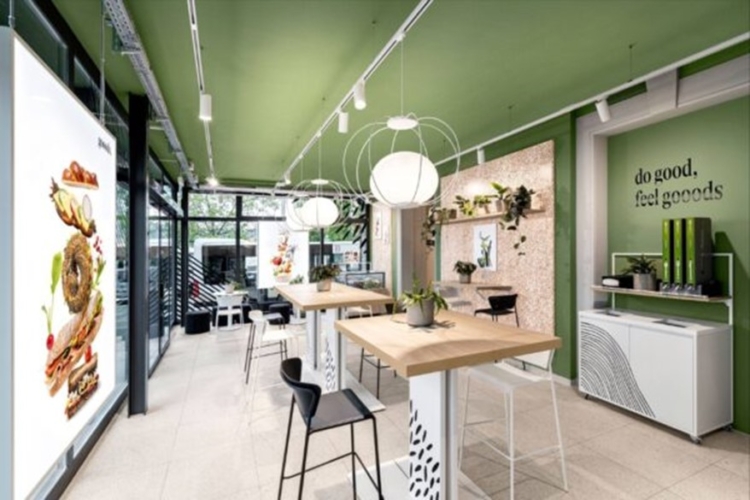
Located at a railway station on the eastern shore of Lake Zurich, Gooods has a prime location on the city’s so-called ‘gold coast’, appealing to wealthy residents and commuters, who can either visit the store and then take the train or park alongside and drive.
Gooods is a digital-first convenience store too. Shopping is done via Migrolino’s app, which consumers download and use to scan and pay for goods with staff on hand to confirm purchases of age restricted products such as tobacco and alcohol.
The store offers delivery for online orders within 60 minutes in certain postcodes. Delivery is free on orders of 80CHF and over, while orders of 50 CHF carry a 5.80 CHF charge.
The tobacco display is digital too. There are no tobacco products on show, which is unique for a c-store, Fuhrer says. Instead there’s a small, touch screen display where consumers can make their selection and the product is dispensed and served by an employee who can verify the shopper’s age.
Digital signage is to the fore too and used to promote time of day offers ie breakfast, lunch and dinner. Gooods is also using the technology creatively to reduce food waste so if there’s too much stock of a particular product it will run a promotion of that particular line.
Fuhrer reports the store has won strong customer acceptance to date. While there are plans for a roll out, this first store is very much a prototype and the format will evolve with subtle changes over time, he adds.
Dark retail
The Swiss Convenience Day 2021 focused on the growth of dark retail and its implications for the Swiss retail scene, Fuhrer reports.
Brands like Gorillas, which offer delivery within 10 minutes and with no minimum order plus pricing that is comparable with supermarkets and cheaper than a convenience store, are gaining ground in Germany, for instance, and are now looking to recruit in Switzerland.
The start up Stash already has a presence in Fuhrer’s home market and is expanding following a recent seed funding round. It too offers delivery within 10 minutes and and with no minimum order value.
Whether these disruptors can make money hangs in the balance, Fuhrer states. Maybe their investors have large pockets and can burn money now in order to be a success story in future times?
But the concept is compelling, he adds.
“If I am at home, and it’s a rainy day, why would I go out in the rain instead of taking my smart phone and pushing a button and in 10 minutes a product is here and I don’t have to go out,” he opines.
Turning the tables indeed.
Subscribe to our free mailing list and always be the first to receive the latest news and updates.
